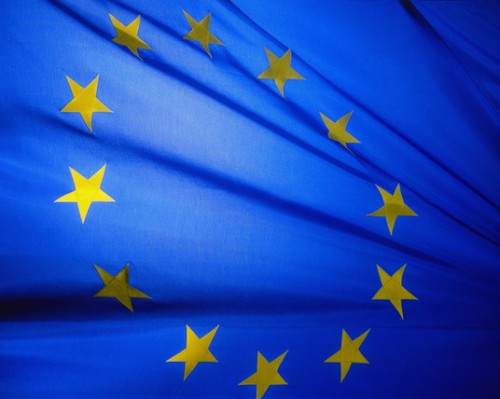
Pat McFadden is taking over the Europe brief just at the time when the issue can work in Labour’s favour. Provided we hold to Ed Miliband’s decision not to cave in to the calls to offer an in-out referendum.

Europe is again becoming toxic for the Tories. How Cameron must be looking back wistfully to that time when he told his party to stop banging on about Europe. That’s exactly what it is now doing. And it’s largely his own fault. The referendum, pledge is the principal cause of his, and his party’s woes.
The pledge has invigorated the party’s eurosceptics. It has made it much harder to be euro-rational in the Tory party. Each new wave of Tory MPs turns out to be more Eurosceptic than ever. The offer of the binary in-out choice provides a simple test of which side you are on, unlike most other issues.
Cameron has also misread the rise of UKIP. First he abused those who vote for them. Not smart. Then, after abandoning that idea, he seems to have concluded that the challenge is all about Europe. Therefore the tougher he gets on Europe, and the more he leans towards scepticism, and even towards exit, the more he will head off the UKIP threat. And of course exactly the opposite has happened.
Cameron has ended up adding fuel to voter scepticism, and getting himself into a policy position that increasingly isolates him from mainstream opinion.
Voters are not engaged in a growing revolt against the UK’s membership of the Union. Quite the opposite. Ipsos-Mori’s latest poll shows, after excluding don’t knows, that ‘stay in’ is backed by 61%, ‘exit’ by 39% (remarkably close to the 1975 referendum result). This is the biggest lead for ‘in’ for 30 years. The EU’s own referendum tracker is less emphatic, showing 40% for ‘in’ and 39% for ‘out’. But the trend is significant: two years ago it was 30% for ‘in’ and 50% for ‘out’.
Cameron’s pandering to UKIP on Europe is not only resulting in his party once again banging on about the subject, but is also leading it away from the trend of public opinion. Nor will it succeed in pulling back UKIP supporters, because polling also shows that 68% of those intending to vote for Farage’s army simply don’t believe the PM’s referendum pledges.
Cameron has aggravated the situation by hooking his tactical euroscepticism to the issue of immigration, where his credibility is on the floor, and where his talk way exceeds anything he might be able to deliver. All the types of behaviour that fuel the UKIP anti-politics sentiment.
All of this underpins Labour’s big opportunity on Europe. By steering clear of the phoney ‘in-out’ issue, Labour has created space to take over the euro-realist territory, where most voters are.
Voters certainly want reform in the EU. But where Cameron’s megaphone approach fails, Labour can quietly work with our sister parties and other sympathetic groups throughout the Union on thrashing out the practical ways to achieve meaningful change.
We should also avoid the Cameron error of linking the Europe question to the immigration question. The smart association is to attach the Europe question to the cost of living question. Because that’s where the voter interest lies.
Our big opportunity is to demonstrate how Europe’s single market can be made further to underpin effective markets and real competition, and how more can be done to protect consumer rights and achieve a more even playing field between those sectors, such as banks and energy, which have acted to the consumer’s detriment. We can show how exit would only aggravate Britain’s cost of living crisis.
We can leave Cameron to take the European issue off to the outer fringes of politics. That’s where the in-out referendum decision has dragged him to. We were right not to follow. Now let’s make the most of the opportunity we have.




More from LabourList
‘Ukraine is Europe’s frontier – and Labour must stay resolute in its defence’
Vast majority of Labour members back defence spending boost and NATO membership – poll
‘Bold action, not piecemeal fixes, is the answer to Britain’s housing shortage’